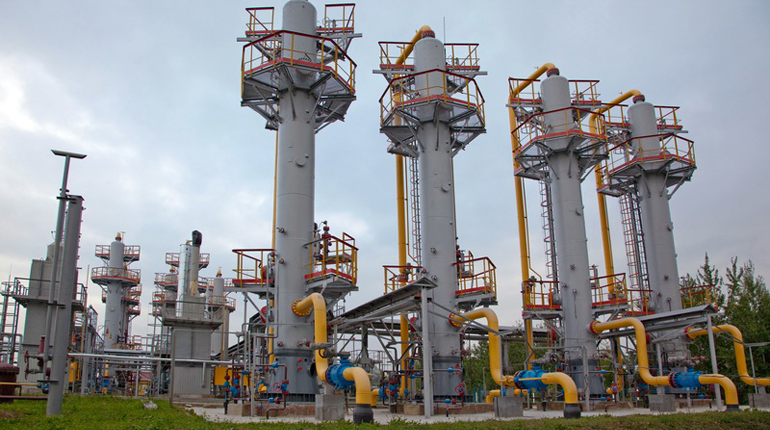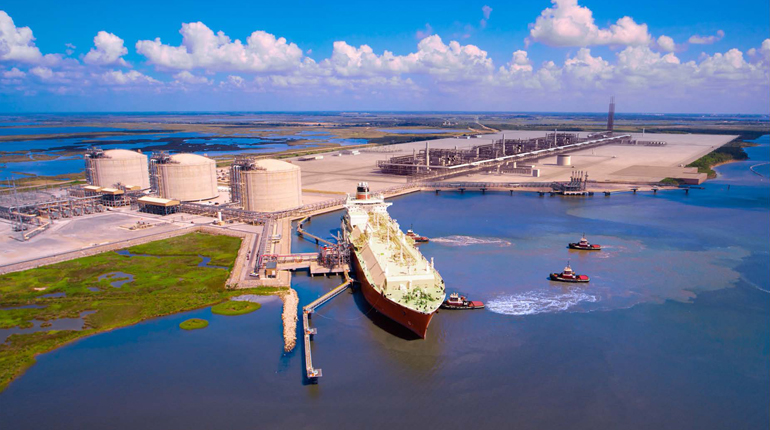The process of reforming Ukraine’s gas sector
The reform of Ukraine’s gas sector is moving forward, with the separation of storage and transmission assets the next key stage for foreign investors.
 Naftogaz Ukrainy is recommending Ukraine’s gas storage and transmission systems be separated. (Ukrtransgaz)
Naftogaz Ukrainy is recommending Ukraine’s gas storage and transmission systems be separated. (Ukrtransgaz)
Ukraine’s national oil and gas company Naftogaz Ukrainy has said the country will not be able to attract foreign investment to the management of the gas transport system (GTS) without first committing to separate it from underground storage facilities.
"Western companies are interested in [the] gas transportation business, and not in the development of the gas storage segment, which is loss-making both in Ukraine and Europe [because of extra gas supply and the narrowing spread between the prices of gas in winter and summer]," the company said in a presentation devoted to the reform process.
Naftogaz posted a UAH 2.9 billion ($107 million) loss for its gas storage business in 2014, compared with a UAH 661 million loss the previous year. Ukraine has the highest national storage capacity in Europe.
"The cost of our underground storage services is very high. Investors are not interested in investing much in the segment, as it is loss-making, there is no development strategy and Gazprom is blocking interconnectors," the company said.
Naftogaz has proposed that public joint-stock company Trunk Gas Pipelines of Ukraine be selected as the operator of the GTS. The underground storage facilities should be left to the current transmission system operator Ukrtransgaz, which belongs to Naftogaz Ukrainy.
Although progress on unbundling Ukraine’s historically centralised gas sector has been slow, one success has been the country’s reduced dependence on Russian gas.
Ukrainian Prime Minister Arseniy Yatsenuk said earlier this month that the country would be able to get through this winter without having to import any Russian gas. The amount of Russian gas imported by Ukraine in 2015 stood at 6.1 billion cubic metres – 2.4 times less than in 2014, when it imported 14.5 bcm.
"I would like to tell you that we will live through the winter without Russian gas for the first time in the entire history of Ukraine," Yatsenuk told diplomats in Kiev on 12 February, attributing it to the reform process.
"One big achievement of the Ukrainian authorities in the last few years is that they have virtually halted the gas trade with Russia. They have started buying gas – probably Russian molecules – but they’ve bought them from Slovakia for the most part and also from Hungary and Poland," said John Lough, vice president at Gabara Strategies, at the Global Energy Security Conference in London.
"This is an enormous achievement because they were very dependent on Russia. The Russo-Ukrainian gas trade was the biggest source of corruption in Ukraine. It corrupted the political elite to a significant degree," said Lough.
Cutting imports
The European Bank for Reconstruction and Development and the World Bank have provided debt assistance to fund Ukrainian gas purchases from European suppliers, while efficiency measures have cut consumption.
Ukraine cut gas imports by 15.9%, or 3.1 bcm, year on year in 2015, to 16.4 bcm. Ukraine cut imports by 54.6% in January 2016 year on year.
Politics are one reason for Ukraine’s newfound independence from Russian gas, but price has also played a role. The country has been buying gas on the spot markets of non-Russian sellers since the fourth quarter of last year for less than it paid under its long-term contracts with Russia, said Professor Jonathan Stern, chairman of the gas research programme at the Oxford Institute for Energy Studies.
"There are all sorts of bizarre statements coming out of Kiev with some claiming that Ukraine has become independent of Russian gas – although I’m not sure where they think this gas has come from," Stern said at the Natural Resources Forum in London on Tuesday. "The important point is that if you’re in Moscow, what sense does it make to allow people to be selling your gas to Ukraine instead of selling it directly?"
Even so, some analysts believe Russia will not be able to stop countries reselling its gas. "[Russia] has questioned the legality and at one point reduced gas deliveries to Slovakia in particular, but it hasn’t been able to do much beyond that," said Lough. This may be the case at the moment, but if the region’s economies take off and gas demand rises beyond the volumes Ukraine is able to source from its non-Russian neighbours, then Russia may be in a position to exert more pressure.
The European Commission’s Vice President for Energy Union Maroš Šefcovic will visit Kiev on 1 March, after attending the Second Southern Gas Corridor Advisory Council meeting in Baku, Azerbaijan on 29 February. Ukraine has proposed a further trilateral meeting aimed at getting a new deal for imports of Russian gas on track.






